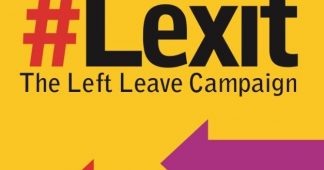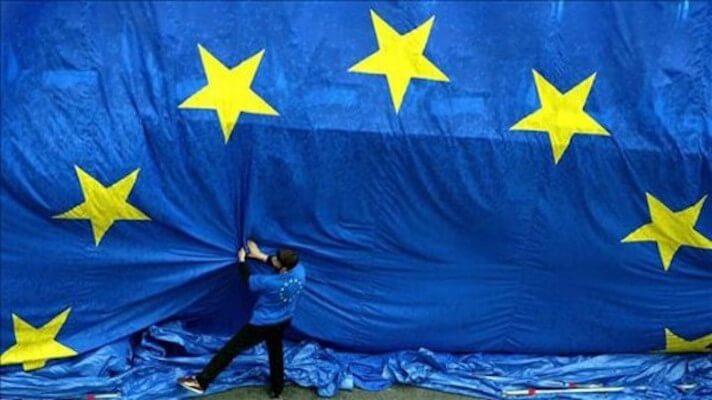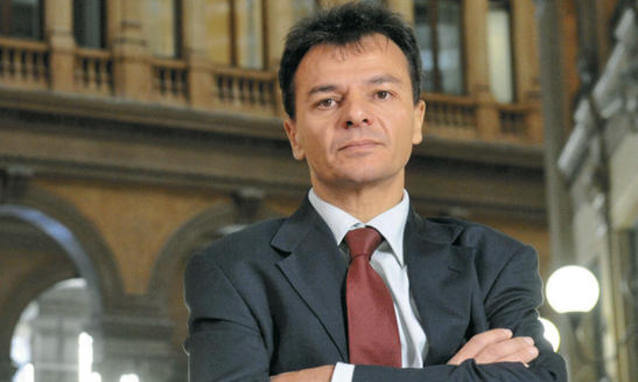BREXIT has shown that the EU cannot continue to do more of the same. It is time for a fundamental change of course. If this is not achieved, it will come to uncontrolled, confrontative or even explosive ruptures. If we want to prevent this, clarifying the currency issue is urgent and unavoidable. This is a key issue for the future of the EU -although not the only one. This is the core message of the following Appeal, formulated before the BREXIT decision.
Social and Democratic EU Blocked
The institutional design of the Euro plays a central role in the EU crisis. A reform of the common currency would require taking at least part of the competitive pressure off the southern European countries. Without high wage settlements in Germany, EU-wide coordinated state-investment programs for ecological and social projects and an effective regulation and control of financial markets, this will, however, not happen.
Instead, the EU institutions, with Germany at the forefront, have been forcing austerity programs on Southern European countries for years now, undermining democracy and the welfare state. In the meantime, the failure of this policy has become self-evident.
In Southern Europe, people are experiencing the rescue of the Euro as a succession of humiliations through which they are increasingly degraded to the role of subordinates. The contradictions of the Euro regime feed resentment among the peoples of the EU member states and divide the EU. This is one of the major reasons why the crisis formed a breeding ground for nationalism and right-wing populism.
The Euro – A Key Problem
The flawed construction of the Eurozone is now acknowledged by many experts. To prevent this construction from collapsing, a system of supporting structures was designed, ie. Fiscal Pact, Six-Pack, Two-Pack, ESM etc. The so-called Five Presidents’ Report prescribes the deepening of the integration along neoliberal lines, culminating in the irreversible, quasi-constitutional imposition of Austerity.
A reflection on alternatives to the Euro is needed. As a central element in the economy, a currency is always a reflection of the relations of power and domination within a given society. The Euro is more than coins, notes or the account balance at the bank: It is a system of regulations and institutions, with the ECB at the top. The way in which a monetary system is designed has a huge impact on the economy and the society as a whole.
An alternative currency system would not solve all problems that stand in the way of a policy oriented towards the common good. However, the monetary regime is a key issue. The widespread opinion (also in left-wing circles) that the currency is economically neutral is a mistake.
What is needed is an open-ended discussion to assess the feasibility of the different proposals that are now on the table. At the heart of such discussions should be the question of the possibility of and conditions for a commonly agreed dissolution of the single currency in favour of a new European currency system. In our view, it is imperative that single states or groups of states are allowed an orderly, socially mitigated and voluntary exit of the Euro system. The new system should oblige the states to cooperate in monetary policy and avoid single-state policies. At the same time, it should put an end to the position of dominance of the ECB and allow the national economies the flexibility and autonomy they need for their economic development and to overcome crisis. A sacralisation of the Euro is completely unacceptable.
Social Justice, Control of the Financial Markets, Democratization
We want an economic policy oriented towards the interests of the social majority and the ecological needs, as well as fair fiscal and social policies. Which role should be allocated to which level –local, national, European– is an open question that should be a matter of discussion.
We want a deep reform of the financial system. The financial casino should be shut down. Financial markets must be put at the service of social and ecologic development. For this reason, we reject the project of a capital market union, which seeks to liberalize financial markets ever more.
We want a democratic renewal. This also means strengthening democracy at the level of the member states and protecting it from authoritarian interventions by the EU and the ECB.
Approved in June 2016
Support the Appeal
First Signatories
- Michael Aggelidis, Bonn, Rechtsanwalt, Europapolitischer Sprecher im Landesvorstand DIE LINKE. NRW
- Jürgen Aust, Duisburg, Jurist, Mitglied im Landesvorstand DIE LINKE, NRW
- Dr. Harald Bender, Heidelberg, Akademie Solidarische Ökonomie, Leitungsteam Koordinator Grundlagenarbeit
- Stephan Blachnik, Berlin, Sozialpädagoge
- Armin Duttine, Berlin, Gewerkschaftssekretär
- Prof. Dr. Wolfram Elsner, Bremen, Wirtschaftswissenschaftler, iino – Institute of Institutional & Innovation Economics
- Prof. Dr. Heiner Flassbeck, Genf, Herausgeber Makroskop
- Nicole Gohlke, München, MdB Die LINKE, Hochschul- und wissenschaftspolitische Sprecherin
- Prof. em. Dr. Eberhard von Goldammer, Witten (Ruhr), Biophysiker
- Karl-Heinz Heinemann, Köln, Vorsitzender der Rosa-Luxemburg-Stiftung NRW
- Inge Höger, Herford, Bundestagsabgeordnete für DIE LINKE
- apl. Prof. Dr. Martin Höpner, Köln, Politikwissenschaftler, Max-Planck-Institut für Gesellschaftsforschung Köln
- Willi Hoffmeister, Dortmund, Ostermarsch Rhein Ruhr Komitee
- Jules El-Khatib, Landesvorstand Linke NRW
- Ralf Krämer, Berlin, Gewerkschaftssekretär, Mitglied des Parteivorstands DIE LINKE
- Dr. Lydia Krüger, Berlin, Mitglied des wissenschaftlichen Beirats von Attac
- Kris Kunst, Mainz, Initiative „economy for the people“
- Oskar Lafontaine, Saarbrücken, Vorsitzender der Fraktion der LINKEN im Landtag des Saarlands
- Wilhelm Langthaler, Wien, Autor
- Christian Leye, Bochum, Landessprecher DIE LINKE. Nordrhein-Westfalen
- Prof. Dr. Ekkehard Lieberam, Rechts- und Politikwissenschaftler, Vors. Marxistisches Forum DIE LINKE Sachsen
- Fabio De Masi, Mitglied des Europäischen Parlaments (DIE LINKE)
- Dr. Julian Müller, Amsterdam
- Siegfried Müller-Maige, Frankfurt, Ökonom, Attac
- Prof. Günther Moewes, Dortmund, Verteilungskritiker
- Dr. Werner Murgg, Abgeordneter zum Steiermärkischen Landtag und Stadtrat in Leoben
- Prof. Dr. Andreas Nölke, Frankfurt, Politikwissenschaftler, Goethe Universität
- Peter Rath-Sangkhakorn, Bergkamen, wiss. Mitarbeiter/Verleger;
- Albert F. Reiterer, Wien, Statistiker, Demograph und Sozialwissenschaftler
- Dr. Werner Seppmann, Gelsenkirchen
- Dirk Spöri, Freiburg, Landessprecher DIE LINKE Baden-Württemberg
- Dr. Paul Steinhardt, Wiesbaden, Herausgeber Makroskop
- Steffen Stierle, Berlin, Attac-Aktivist, europ. Lexit-Netzwerk
- Ben Stotz, Berlin, Organizer, DIE LINKE Berlin
- Peter Wahl, Worms, WEED-Weltwirtschaft, Ökologie & Entwicklung, Wissenschaftlicher Beirat Attac
- Andreas Wehr, Berlin, Jurist und Publizist
- Lucas Zeise, Frankfurt/M., Chefredakteur der UZ, Zeitung der DKP
- Thomas Zmrzly, Duisburg, Krankenpfleger, Duisburger Netzwerk gegen Rechts











